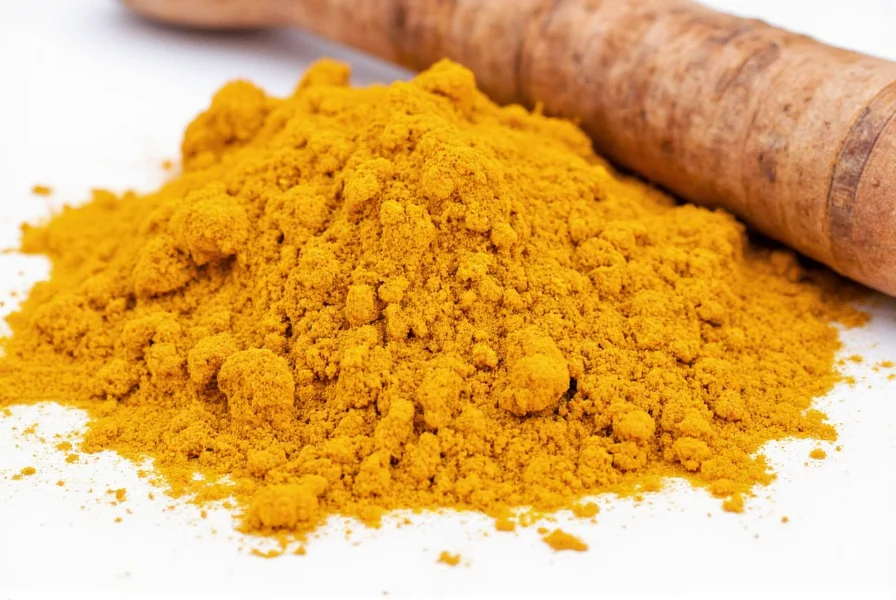For millions who incorporate turmeric into their diets for its vibrant color and potential health benefits, concerns about liver safety have emerged as supplement popularity grows. This comprehensive analysis examines the scientific evidence behind turmeric's relationship with liver function, separating culinary reality from supplement risks.
Understanding Turmeric and Its Active Components
Turmeric (Curcuma longa), a bright yellow spice central to many global cuisines, contains curcuminoids as its primary bioactive compounds. Curcumin represents about 2-8% of raw turmeric root by weight and approximately 75% of the curcuminoid complex. When consumed as part of regular cooking—typically 1-3 grams of turmeric powder daily—the concentration of curcumin remains relatively low (20-60 mg).
Supplement forms present a different scenario. Many curcumin supplements contain standardized extracts providing 400-2,000 mg of curcumin daily—amounts impossible to achieve through dietary consumption alone. This distinction between culinary use and concentrated supplementation is critical when evaluating liver safety.
The Dual Nature of Turmeric's Liver Relationship
Research reveals turmeric's complex relationship with liver health—demonstrating both protective potential and rare adverse effects:
| Context | Effect on Liver | Scientific Support |
|---|---|---|
| Culinary consumption (1-3g turmeric) | Generally protective | Multiple observational studies |
| Standardized supplements (400-1,500mg curcumin) | Generally safe for most | Clinical trials up to 12 months |
| High-dose supplements (>1,500mg curcumin) | Rare hepatotoxicity cases | Case reports and pharmacovigilance data |
| Pre-existing liver conditions | Potential for adverse interactions | Limited clinical evidence |
Scientific Evidence: Benefits vs. Risks
Numerous studies highlight turmeric's potential liver-protective properties. A 2022 systematic review in Nutrients analyzed 21 clinical trials involving 1,727 participants, concluding that curcumin supplementation significantly improved liver enzyme levels (ALT, AST) in individuals with non-alcoholic fatty liver disease. The anti-inflammatory and antioxidant properties of curcumin appear responsible for these beneficial effects.
However, the U.S. National Institutes of Health's LiverTox database documents 35 cases of turmeric-related liver injury reported between 2012-2023. Most cases involved:
- Supplement doses exceeding 1,500 mg curcumin daily
- Symptom onset within 1-6 months of starting supplementation
- Resolution of symptoms after discontinuation
- Recurrent symptoms upon re-challenge in some cases
Researchers note that individual genetic variations in drug metabolism may explain why only certain people experience adverse effects. The CYP450 enzyme system, particularly CYP2C9 and CYP3A4 variants, appears to influence susceptibility to turmeric-related liver issues.
Identifying At-Risk Populations
While turmeric remains safe for most people when used as a spice, certain individuals should exercise caution with supplements:
- Those with pre-existing liver conditions like cirrhosis or hepatitis
- Individuals taking medications metabolized by CYP3A4 or CYP2C9 enzymes
- People with genetic polymorphisms affecting drug metabolism
- Those consuming multiple supplements simultaneously
A 2023 study in Hepatology Communications identified women over 50 as representing 68% of reported turmeric-related liver injury cases, though the reasons for this demographic pattern remain unclear. Researchers suggest hormonal factors or higher rates of supplement use in this population may contribute.
Practical Guidelines for Safe Consumption
Based on current evidence, these recommendations balance potential benefits with safety considerations:
- Culinary use: Up to 3 grams of turmeric powder daily (about 1 teaspoon) appears safe for virtually all adults
- Supplement use: Limit to 500-1,500 mg of standardized curcumin extract daily unless under medical supervision
- Duration: Consider taking periodic breaks from supplementation (e.g., 2 weeks off monthly)
- Monitoring: Get liver enzyme tests before starting high-dose supplementation and periodically thereafter
- Quality matters: Choose supplements with third-party verification for purity and accurate labeling
When combining turmeric supplements with other medications, particularly those affecting liver metabolism like statins, blood thinners, or diabetes medications, consult your healthcare provider. The potential for interactions increases significantly with multiple supplements or medications.
Distinguishing Supplement Risks from Food Safety
It's crucial to differentiate between turmeric as a food ingredient and concentrated supplements. No documented cases exist of liver injury from culinary turmeric consumption alone. The risk appears confined to high-dose supplementation, particularly with:
- Products containing black pepper extract (piperine) which increases absorption
- Supplements with undisclosed additives or contaminants
- Products exceeding recommended dosages
The European Food Safety Authority established an acceptable daily intake of 0.13 mg per pound (0.3 mg/kg) of body weight for curcumin, translating to approximately 22 mg for a 165-pound adult. This represents the amount found in about 1-2 grams of turmeric powder—well within normal culinary use.
Recognizing Potential Liver Issues
While rare, turmeric-related liver injury typically presents with these symptoms appearing 1-6 months after starting supplementation:
- Unexplained fatigue and weakness
- Abdominal discomfort, particularly in the upper right quadrant
- Nausea and loss of appetite
- Dark urine and pale stools
- Jaundice (yellowing of skin or eyes)
If you experience these symptoms while taking turmeric supplements, discontinue use immediately and consult a healthcare provider for liver function testing. Most cases resolve within weeks to months after stopping supplementation.
Conclusion: A Balanced Perspective on Turmeric and Liver Health
The question of whether turmeric harms the liver requires nuanced understanding. Current evidence suggests that normal dietary consumption of turmeric poses no liver risk and may offer protective benefits. High-dose supplementation, however, carries a small but documented risk of liver injury in susceptible individuals.
As with any supplement, informed decision-making matters. Consult your healthcare provider before starting high-dose turmeric supplementation, especially if you have liver concerns or take medications. For most people enjoying turmeric as part of a balanced diet, liver safety concerns should not deter its culinary use.











 浙公网安备
33010002000092号
浙公网安备
33010002000092号 浙B2-20120091-4
浙B2-20120091-4